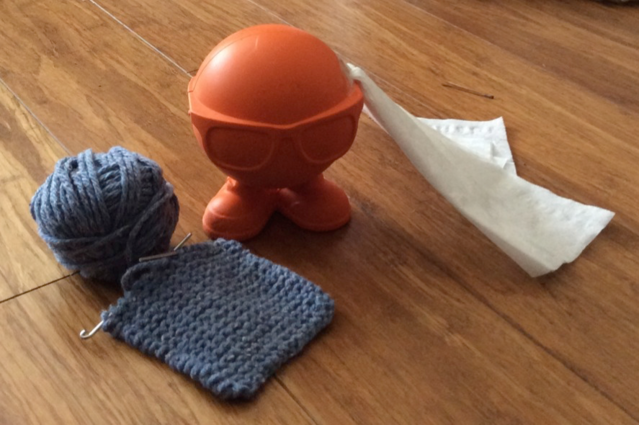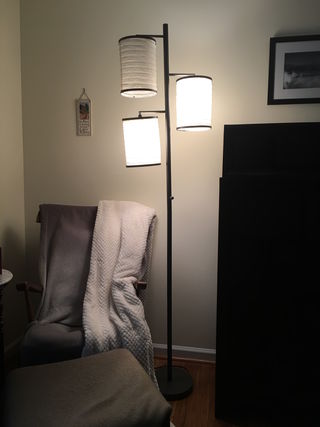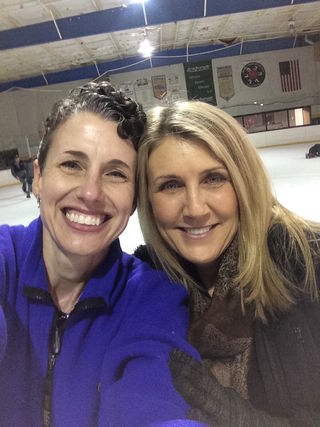OCD
What My OCD and I Are Packing for Our Trip to France
Why I never leave home without four special keys...that don't unlock my house.
Posted May 23, 2017
For my first Psychology Today blog post, I thought I’d talk about my packing lists for my upcoming trip to France.
“What?” you ask, confused. “I don’t even know you. Why would I care about your packing lists?”
Good question! The answer is simple, if you, like me, have OCD. I have yet to go on a vacation where my OCD didn’t want to come along. (If you have OCD, I’m guessing you can probably relate.) And having fun on a vacation with OCD requires me to bring items from three different lists:
- All the things I will need on vacation: comfy shoes and sunscreen, for instance.
- The couple of things my OCD will need while it’s out of town with me…more on that in a minute.
- While it’s the last list, it is the most important, as it contains my four keys. Specifically, the Four Keys Out When Locked in Doubt. Even if my luggage ends up in Spain instead of France, if I have my Four Keys, I’m going to have a good time.
Before I go into exactly what the Four Keys are, let me tell you a little about the second list, OCD’s packing list. It will help you understand why, if you have OCD, the famous 70s advertising campaign for American Express Traveler's Cheques, “Don't Leave Home Without Them” could just as easily apply to the Four Keys.
OCD’s Packing List
My OCD requires two things not only on vacation, but really wherever it goes. First, it requires tissues. Because it cries. Sometimes a lot.

I personify my OCD as a little orange ball with feet and sunglasses that looks just like this JW Pet Good Cuz dog toy. When I haven’t been doing enough exposure and response prevention (ERP) maintenance therapy (the gold-standard therapy for OCD), my little orange ball waddles around behind me, pulling on my shirttail and pointing out all the things that could kill us. (Yes, it’s sort of annoying). When it finds some supposed danger, it starts crying, pulls harder on my shirttail, and begins whining about how we’re about to die. At this point, if I don’t do some ERP, my little orange ball will start transforming into a much more hideous monster…but I’ll save the details about that for another blog.
If I keep up with my maintenance ERP, however, most of the time my OCD stays busy with its other possession: its knitting. It just sits on my shoulder, its back to me, quietly knitting away on a blue wool scarf. Which is why the second thing on my OCD’s packing list is its knitting supplies, which I provide for it in abundant quantity by doing regular maintenance ERP, because my life is much better when my OCD is focused on needlework and not on its other favorite pastimes: doom, death, and destruction.
The Four Keys…and a Lamp
When it’s on vacation, my OCD likes to stop knitting occasionally so it can sightsee. It is not, however, interested in ancient castles and paintings by van Gogh. No. Instead, it is interested in identifying things that are “dangerous:” things that might kill us, cause us great distress, or ruin our life, now or in the future.
Poor thing—no matter how many places I take it, it has never fully learned how to kick back and enjoy travel.
Which is why I am going to pack the Four Keys Out When Locked in Doubt for my trip to France. Jeff Bell, my partner in the Beyond the Doubt blog, and I developed the Four Keys to help us successfully and happily navigate life with OCD. The keys help me enjoy my time, wherever I am, regardless of what my little orange hitchhiker decides to do.
To explain each of the Four Keys, I’ll use an example of a typical “vacation OCD” intrusive thought that OCD might decide to share the first day into our trip.
“Shala, Shala!” it whines, tugging on my shirtsleeve as I pull my suitcase through the airport.
“Yes, OCD?” I ask, trying to be patient with it as I navigate through all the people milling around. It really does have the worst sense of timing.
“Remember how you and Jeff broke that lamp this weekend?”
“Uh huh….” Jeff and I were recording an online workshop this past weekend. Jeff had moved a standing floor lamp with three hanging fixtures from my office to the living room, where we were recording, but the top of the lamp had accidentally hit the spinning ceiling fan en route, and now the top fixture seems to have shorted out.

“Well, I know that there’s no bulb in that fixture anymore, but you left the lamp plugged in, and what if somehow it catches fire while we’re gone and burns the whole house down? And since we’re in a condo, what if our unit catches other units on fire and they burn to the ground and people die and pets die and it will be all our fault!!!!” My OCD, at this point, is sobbing uncontrollably and making a scene as it holds onto my shirttail, blowing its nose loudly into a tissue, as I try to continue walking to my gate.
There, we have a predictable “vacation OCD” scenario. Now let’s look at the Four Keys and how I would use them to have fun, even with this annoying little intrusive thought wanting to share my already too-small seat on the airplane.
Key One (Triple-A Attitude): Abundance, Appreciation, Authenticity
The first Key is a Triple-A Attitude. “Triple-A” stands for abundance, appreciation, and authenticity. When OCD starts whining, I pull this item out of my metaphorical suitcase by telling myself statements like the following:
- “The universe is not out to get me. I do not have a target on my back. If bad things happen, like condos burning down, they aren’t going to necessarily pick me to happen to.” That’s abundance, which is making a choice, one that Albert Einstein said was one of the most important choices any of us could make, to see the universe as friendly, not vindictive.
- “Thank you, OCD, for this interesting thought. I wanted an opportunity to practice my ERP before even getting on the plane!” That’s appreciation, being grateful for what’s here in the present moment.
- “The lamp may or may not short out. The house may or may not burn down and kill people and pets. I want my anxiety because facing my fears and this uncertainty is how I beat you, OCD.” This is authenticity. I am not my doubts and my fears. And I have all the potential, what we might call “universe-al” (see the first statement above) potential, to face my fears by not calling a neighbor to go unplug the lamp (a compulsion that would strengthen my OCD) and instead say my imaginal exposure scripts (my “may or may not” statements) so that I can come to terms with the uncertainty that underlies all OCD and hear my own inner voice again.
Maintaining a Triple-A Attitude is super important when you have OCD. Because we don’t have any choice about whether we’re going to have intrusive thoughts now and then. But we do have a choice about our attitude toward them.
Key Two (Resolve): Maintaining Perspective Despite OCD
The next Key I can remove from the suitcase as I’m waiting for my flight to board is the Resolve key, which helps me put this particular OCD episode into perspective. To use the Resolve key, I can:
- Commit to putting my commitments ahead of my comfort. As well as being a traveler and a person with OCD, I’m also an OCD therapist. I would tell any client experiencing this intrusive thought to say their exposure script while not doing any rituals, and if I follow my own advice, I’m going to be anxious! And that’s good, because moving toward what scares my OCD, not toward what is comfortable, is how I honor my commitment to getting better and to trying to model the on-the-fly ERP that I’d want my clients to do.
-

Shala with friend and traveling companion Dr. Becky Beaton...who is a lot more fun than Shala's OCD...
Source: Shala Nicely/Beyond the DoubtRemember the big picture and my Greater Good. When OCD is crying and whining, it wants its obsession to be the center of my world. But it’s not—the big picture is that I am going to France. My Greater Good, which is my sense of purpose and/or how I can be of service to others, helps me to focus on the bigger picture. I can enhance my own sense of purpose by facing my fears and be of service to my traveling companion, my friend Becky, by not getting lost in a sea of mental or physical compulsions.

Shala with friend and traveling companion Dr. Becky Beaton...who is a lot more fun than Shala's OCD...
As I stand in line waiting to board, I use Key Two to bolster my determination to face my fears head on without giving into the momentary and illusory comfort promised by OCD’s compulsions.
Key Three (Greater Good): Choosing Purpose & Service (Greater Good) over Fear and Doubt (OCD)
We all have choices in life, and I hold firmly to the next Key, the Greater Good key, as I walk down the jet way toward my plane, as this Key helps me make challenging choices in the face of OCD’s worries by empowering me to:
- Claim and exercise my freedom to choose. As Viktor Frankl stated, the larger we make the space between stimulus (in this case, my intrusive thought) and response (how I react to it), the more freedom we have. My bawling OCD wants me to do a compulsion right now so it can feel better, but I’m going make a Greater Good choice instead.
- Picture possibility and direct my attention. The focus of my attention is important, because it shows my brain what’s important. So I’m going to take this opportunity to picture the possibility of what having fun on vacation would look like and then direct my attention to acting like that, which means I’m going to…
- Act from abundance in ways that empower. I’m going to throw my shoulders back and act like I’m having the greatest time of my life, since my Greater Good at this moment is to enjoy my vacation with Becky (service) and to continue to strengthen my OCD recovery (purpose). I may not feel like I’m having a great time, because my OCD is still going to be upset (maybe even more so since I’m acting as if what it’s saying is irrelevant), but I’m going to act in ways that empower Becky and me to enjoy ourselves, not to reduce my anxiety. I’m going to be acting like the OCD content (all that stuff it whines about) doesn’t matter, which is the essence of good exposure therapy.
The Greater Good key is where the rubber meets the road, where we make the hard but rewarding choice of doing ERP, of investing in our current anxiety for the promise of future peace.
Key Four (Surrender): Letting Go of What OCD Says You Can Control.
As I settle myself into my airplane seat, my OCD continues to cry a little, but it’s starting to understand from my use of the first three Keys that it doesn’t have control over, well…..anything. This is the essence of of the last Key, giving myself permission to:
- Accept and let go of what I can’t control. Even if I did call the neighbor to unplug the lamp, maybe she would bump into the stove on her way out, not notice that she turned on a burner, and somehow that burner would catch on fire and burn down the house anyway! I can do the best I can to prevent problems, but I cannot control much of anything. No one can.
- Allow for bigger plans that my own to unfold. OCD wants me to judge anything it doesn’t like as “bad” and anything that seems harmless as “good.” But that’s overly simplistic. Maybe something positive will come from having this particular OCD episode...like my very first blog post for Psychology Today!
Accepting and embracing uncertainty and lack of control are the essence of psychological flexibility, which is the cornerstone of good mental health.
As we lift off into the sky, my OCD seems to be in a better mood, thanks to the Four Keys. It’s stopped crying and is now reviewing the in-flight movie choices, hoping to find an interesting film. Something about the apocalypse would be right up its alley.
The Four Keys help both Jeff and me to strengthen our ability to be mentally flexible, which is paramount for joyful living when your permanent traveling buddy is OCD.
For notifications of new blog posts as well as OCD-taming tips & resources, sign up for my Shoulders Back! newsletter.




